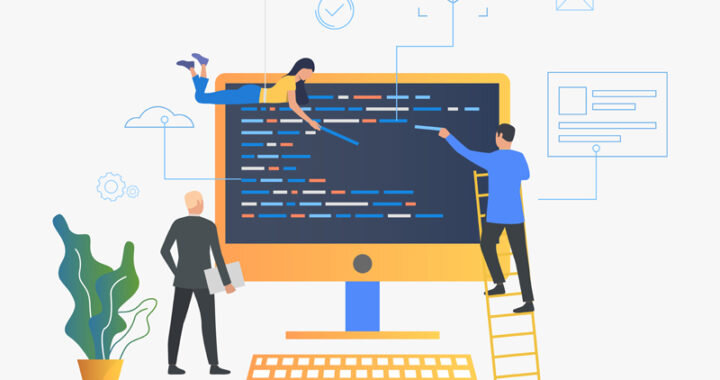Maintain Network Operations with Care via Cutting-Edge Operations Support System
An Operations Support System along with business support system constitutes a major share of telecom operations.
An Operations Support System along with business support system constitutes a major share of telecom operations. In the past, both OSS and BSS were considered to be separate paradigms; however, the line between them is collapsing very fast. The modern-day approach is about increasing efficiency, for which, it is necessary to have an overlapping of these two telecom business functions. A rise in the use of IT methodologies and virtual functions has made it possible to have a single interface for managing both business and operational tasks.
Support Better Service Delivery with Innovative Operation Support System
An OSS performs the following tasks:
· Management of different network functions
· Delivery of service
· Fulfillment of service
· Service assurance
· Timely support to telecom customers
To perform these tasks, an OSS relies upon:
· Management of data
· Arrangement of sequence, in which, the tasks need to be performed
· Upgrades in technology to meet growing requirements
· Management of data and processes via relevant applications (APIs)
An Operation Support System performs the extremely important task of identifying errors and making the operation error-proof. Nowadays, telecom operations are carried out in a seamless manner and the OSS functions can be performed by a single intuitive interface.
Combine B/OSS with Quality Billing for Best Service
A single interface that manages all day-to-day telecom operations is nothing less than a godsend. Platforms like Telgoo5 offer both single and unified telecom solutions that work ideally for MNO, MVNO and MVNE.
Complete management via a single platform
When you have a state-of-the-art B/OSS model along with real-time charging, you can serve your customers in the best way possible. It becomes easier to have a single view of customers during monetization, service delivery and billing.
Greater revenue assurance
A real-time Online Charging System (OCS) ensures charging of transactions in a few milliseconds. Hence, there is no revenue leakage, and the billing is completely transparent for the subscribers.
Ability to launch differentiated products
Modern-day telcos need to think on their feet. A versatile telecom support system allows telcos to create attractive plans that combine a wide range of services. For example, you can monetize a video streaming service with a data pack. Also, you can manage the complete partnership with a third-party service provider. There is complete abstraction in the process i.e. the system does everything for you and you do not feel out of your depth even while creating complex service plans for the users.
Why You Need an OSS
OSS (Operations Support Systems) are designed to be integrated in an enterprise’s telecommunications resources. These solutions are aimed at supporting telecommunication networks. They are classified into:
TPS(Transport Processing Systems)
MIS (Management Information Systems)
ERP (Enterprise Resource Planning)
OSS (Operations Support Systems) are designed to be integrated in an enterprise’s telecommunications resources. These solutions are aimed at supporting telecommunication networks. They are classified into:
TPS(Transport Processing Systems)
MIS (Management Information Systems)
ERP (Enterprise Resource Planning)
Understanding what each of them do and how they work will ensure you understand the importance of OSS in any telecommunication business.
TPS
A Transport Processing System focuses on the processing and recording of transactions in the business. The entire gamut of daily routines is encompassed by any TPS. Routines may include, but not limited to, billing, sales order processing and financial accounting. The general structure of a Transport Processing System is determined by the type of transactions in a company. For instance, a financial accounting system structures financial related transactions. That can include be invoices, payments and receipts. Each of these transactions are processed by a specific module.
MIS
This system is designed to meet the needs of managers, specifically with regards to the past and current operations. The majority offer a summary report of the enterprise’s operations. Some have the option of an on-line link to each transaction. MIS improves the efficiency of an enterprise by ensuring managers can perform their duties easily and as fast as possible.
ERP
Traditionally MIS has been based on inputs from transaction based processing systems. As such, they have continued to be designed around different types of transactions. With this in mind, organization structures determine the design of MIS. Under MIS, information is provided in the form of reports that will be needed for different departments. MIS modules would be based on the kind of departments in an organization’s structure. Currently, MIS is starting to lose its relevance. This is due to the increasing relevancy of flexibility involved to reorient MIS to a changing business environment. The buzzword of today is business process reengineering. This means enterprises need to change their approach towards business processes. Advancement in telecommunication technology has led to the emergence of a new information system known as ERP. An Enterprise Resource Planning system integrates each process of an organization with customer satisfaction while planning the management of resources. Such solutions help an enterprise to focus on production capacities, working out financial consequences of every decision and managing logistics, rather than just computing costs. Integrating business processes at all levels is the basic philosophy of an Enterprise Resource Planning system. It works by treating every resource in an enterprise as a common resource designed to cater to the various needs of clients. ERP systems recognize that the needs of clients are always changing. It offers adaptability to these changing needs with a faster response.
Bottom Line
All telecommunication enterprises need more than one of the above mentioned OSS sub-categories. We at Tegloo5 have come up with a number of systems to ensure your telecommunication business runs as smoothly as possible. In the event your business module is unique, we can design and develop an OSS that will meet and even surpass your needs. Contact us today so we can figure out how to come up with the best OSS for your business.




